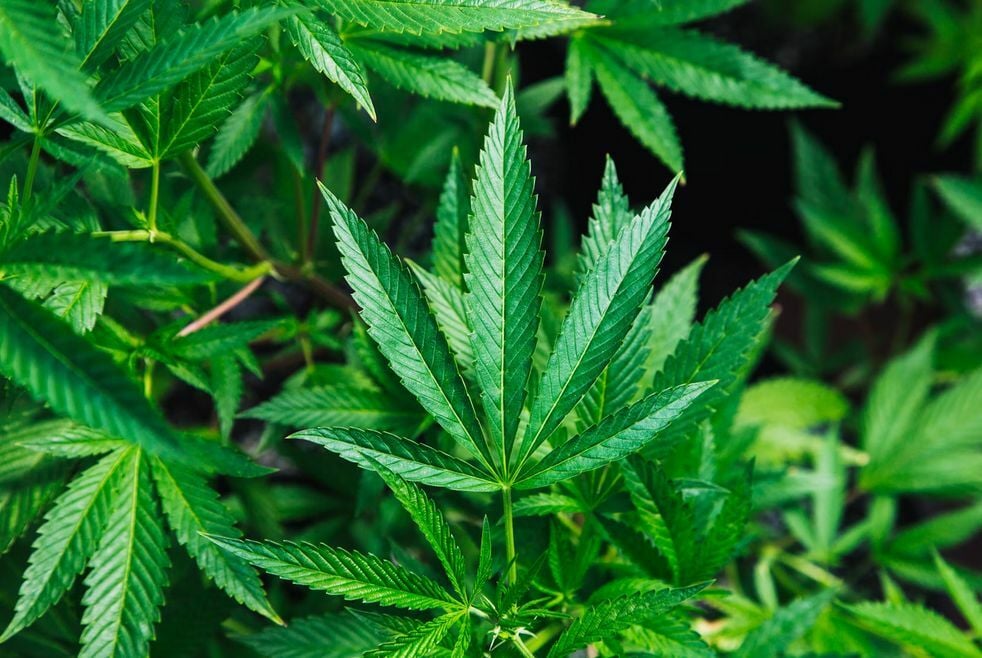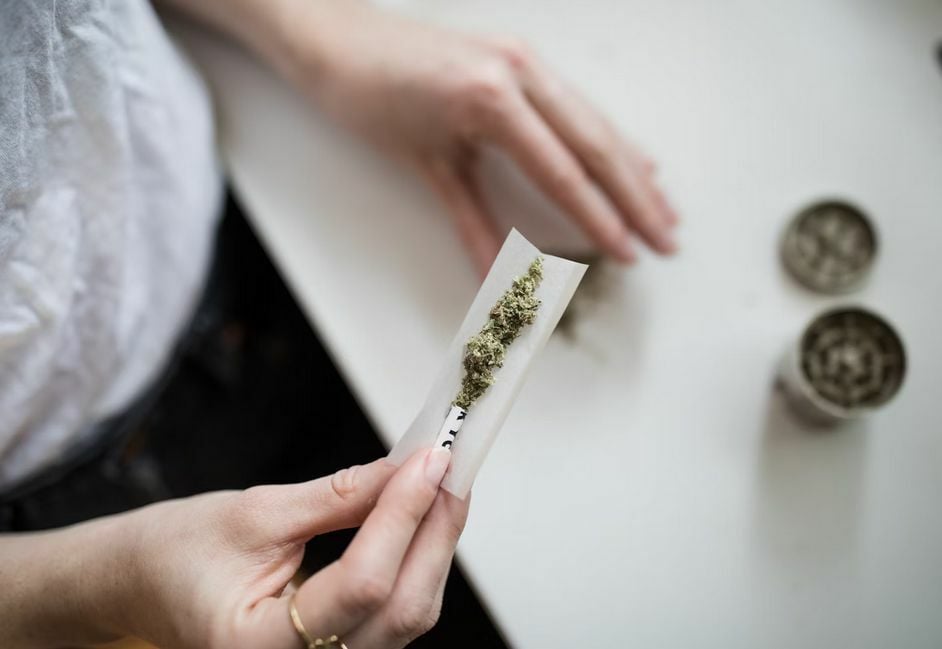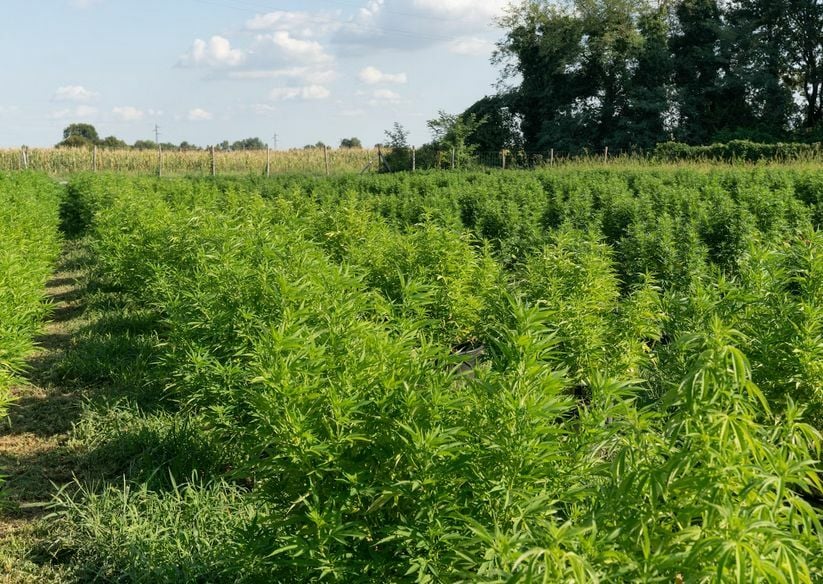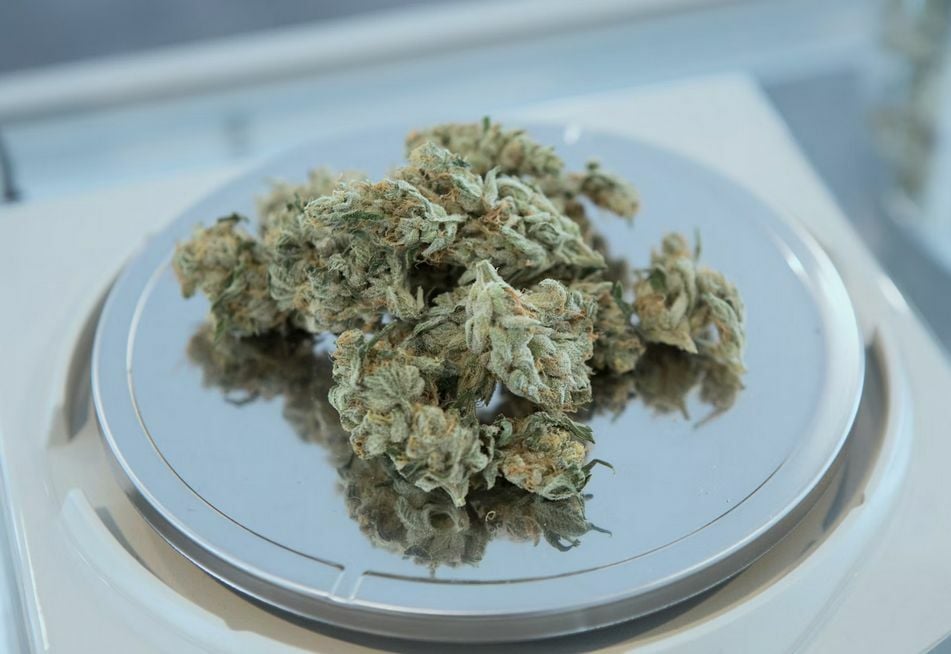The ultimate guide to selling cannabis in Thailand

Selling cannabis in Thailand offers unique opportunities due to recent changes in the legal view. In 2022, the country decriminalised cannabis, removing it from the list of controlled narcotics. This landmark decision permits the cultivation and use of cannabis without fear of legal repercussions.
Key takeaways:
-
Regulatory View: Learn about the strict licensing requirements for cultivation and distribution.
-
Legal Risks: Understand the penalties for unauthorised use and cultivation.
-
Market Opportunities: Discover the potential in medical cannabis and tourism sectors.
Navigating the regulatory framework is essential for successful operations. Obtaining the necessary licences for cultivation and distribution is mandatory. Failure to follow to these regulations can lead to severe legal consequences. Securing proper authorisation mitigates risks and ensures your business remains within the legal boundaries.
Thailand’s burgeoning market not only caters to local consumption but also offers potential beyond it. Moreover, the medical cannabis sector, in particular, shows significant growth prospects. Furthermore, collaborating with healthcare providers can expand your business reach. Additionally, tapping into the medical tourism sector can also open new revenue streams.
Understand Thailand’s cannabis regulations
To succeed in selling cannabis in Thailand, it’s essential to grasp the country’s evolving regulations. The government frequently updates the legal framework, impacting cultivation, usage, and sales.

Requirements for Growing
Cannabis cultivation in Thailand mandates compliance with specific legal guidelines. The Thai government, recognising cannabis’s potential, legalised cultivation with restrictions to ensure proper use. Individuals and businesses must register with the Food and Drug Administration (FDA) to grow cannabis legally. Registration permits you to cultivate plants without limits, which can greatly benefit your operations.
Foreign ownership faces strict controls. Any cannabis cultivation business requires majority Thai ownership and control. This ensures local influence remains dominant. Securing the necessary permits involves understanding and adhering to these legal requirements.
Thailand’s focus on medical use additionally affects cultivation practices. Growers must ensure their operations match with the regulatory focus on medical and research purposes. This compliance secures your business’s legality, avoiding potential fines or sanctions.
Requirements for Selling Cannabis
Selling cannabis in Thailand encompasses multiple regulatory layers. First, obtaining a business licence is mandatory. This licence ensures your operations follow to government standards. Prospective sellers must register with the Ministry of Public Health, securing approval to enter the market.
You must also consider the type of cannabis products permitted for sale. Medical cannabis products, supporting the government’s health-centric agenda, are the primary focus. Therefore, aligning your inventory with approved medical strains and products maximises compliance and market potential.
Adhering to labelling and packaging requirements is equally crucial. Products must meet FDA standards to ensure consumer safety and regulatory compliance. These protocols include providing clear dosage information and warning labels.
The recent changes in regulations regarding cannabis in Thailand

Selling cannabis in Thailand has become more complex due to recent legal changes. In 2018, the government legalised medical cannabis, opening doors for its regulated use and cultivation.
In 2022, Thailand decriminalised cannabis, removing it from the Category 5 narcotics list. Despite this liberalisation, recreational use remains a grey area. Although not explicitly legal, the lack of regulation led to a boom in cannabis tourism, with shops openly selling high-THC products above the 0.2% legal limit.
The view shifted again in 2024 with the election of a conservative government led by the Pheu Thai Party. They pledged to ban recreational cannabis use and relist it as a narcotic, citing health risks and concerns over substance abuse among young people. New regulations now focus more on medical and research-based uses. Your business must match with these priorities to stay compliant.
With the planned ban on recreational use by the end of 2024, focusing on medical and health-related cannabis products is prudent. The government plans to introduce strict penalties for unauthorised activities.
Understanding the importance of regulatory compliance and adapting to legal changes is important. Staying informed and prioritising medical cannabis helps maintain legal standing and optimise business potential in Thailand’s cannabis industry. If you are still interested in laws and the recent changes to cannabis in Thailand, we would love to recommend you check out “cannabis legal status 2024.“
Navigating cannabis business opportunities in Thailand
Entering the cannabis market in Thailand presents significant potential, yet it demands careful navigation. Since the decriminalisation of cannabis in June 2022, the country has emerged as a promising player in the industry. Consequently, market revenue is projected to reach USD 410.80 million by 2024. Therefore, understanding the current regulations and upcoming legal perspectives is vital for success.

Economic Impact and Market Trends
Investing in the cannabis market in Thailand not only promises substantial returns but also capitalises on the sector’s rapid growth and immense market potential. Furthermore, the industry significantly contributes to the rural economy by creating jobs and thereby stimulating local businesses. Consequently, with a projected annual growth rate of 13.25% until 2028, aligning your business strategies with market trends can therefore position you advantageously in this expanding sector.
Cultivation and Distribution
Thailand’s cultivation and distribution regulations focus heavily on licensed medical use. Securing the necessary permits if you’re interested in these areas is essential. The government favours businesses invested in research and stringent compliance with production standards.
Strategic Approaches
Adopting a strategic approach ensures you match with Thailand’s stringent licensing and regulatory requirements. Focusing on medical cannabis research and development, engaging in community education, and collaborating with local authorities maximises compliance and business growth. Proactively staying informed about legislative updates and market trends can also help mitigate uncertainties.
Thailand continues to refine its cannabis laws, reflecting a cautious approach toward decriminalisation. Navigating this view effectively necessitates adherence to regulations, strategic planning, and a focus on legal compliance. Selling cannabis in Thailand becomes viable by prioritising medical applications, investing in legal research, and staying agile in response to regulatory changes.
The main types of cannabis licences
To sell cannabis in Thailand legally, you must secure the appropriate licences. The Thai Food and Drug Administration (Thai FDA) oversees cannabis licensing, regulating various aspects of cultivation and sale under the Narcotics Act. Different licences exist to cater to various business needs and activities in the cannabis industry.

Cultivation Licence
This licence allows you to grow weed plants. Over 1.1 million Thai people have registered to cultivate cannabis, leveraging its profitability over traditional crops like rice or maize. Farmers switching to cannabis find this licence essential. It’s crucial for local farmers to have this licence to remain compliant with Thai cannabis regulations.
Production Licence
This licence covers the manufacturing and processing of weed products. If you’re in the business of creating cannabis oils, edibles, or other products, a production licence is mandatory. Without it, manufacturing operations within Thailand would be illegal under current laws.
Commercial Sale Licence
You need a commercial sale licence to engage in the sale of weed products. Retailers and dispensaries benefit from this licence. Selling without this certification could result in severe penalties. Ensure your business meets all requirements to operate legally in the retail cannabis market.
Import/Export Licence
For businesses looking to import or export cannabis, this licence is vital. The Thai FDA strictly regulates cross-border cannabis trade. Obtaining this licence reflects adherence to both local and international laws. Penalties for unlicensed import/export activities are stringent, making compliance mandatory.
Research and Development Licence
If your focus is on medical or scientific research involving weeds, a research and development licence is necessary. Aligning with the recent regulatory emphasis on medical cannabis, this licence supports studies and innovations. Many universities and research institutions hold this licence to conduct authorised cannabis research.
Medical Prescription Licence
Healthcare professionals prescribing weeds to patients need this specialised licence. It authorises doctors to legally suggest cannabis for therapeutic use. This certification aligns with the broader framework promoting medical cannabis in Thailand. Proper licensing ensures that medical cannabis prescriptions follow to prescribed standards.
Transportation Licence
Transporting cannabis within Thailand requires a specific licence. Distributors and logistics providers need this to move cannabis products between locations safely and legally. Without it, transportation activities would breach regulatory standards.
Online Sale Licence
With the rise of e-commerce, an online sale licence is crucial for those wishing to sell weed products digitally. This licence ensures that online transactions comply with national standards. Tech vendors must secure this approval to operate legally within the burgeoning online cannabis market.
Compliance with the Thai FDA regulations and securing the proper licences not only legitimises your cannabis business but also positions it for sustainable growth in Thailand’s evolving cannabis market.
License Summarisation | |
| Cultivation | You need a license to legally grow weed. Adhering to cultivation regulations ensures compliance. |
| Production | A separate license covers the production of cannabis products. This includes extraction, processing, and packaging operations. |
| Distribution | Selling cannabis products requires a distribution license. Each step from wholesale to retail falls under this category. |
| Importation/Exporting | Importing cannabis seeds or products necessitates a license from the Thai Plant Quarantine department. Ensuring all imports comply with these guidelines is crucial. |
| Research and development | This license focuses on scientific research on cannabis. |
| Medical Prescription Licence | It is required for a specialised licence for healthcare professionals prescribing cannabis to patients and suggested cannabis for therapeutic use only. |
| Transportation Licence | Distributors and logistics providers need this to move cannabis products between locations safely and legally. |
| Online Sale Licence | This licence ensures that online transactions comply with national standards. Tech vendors must secure this approval to operate legally within the burgeoning online cannabis market. |
Licensing process in Thailand
Understanding the licensing process in Thailand is crucial for anyone looking to sell cannabis in Thailand.
- You need a Cannabis Retail Licence from the Ministry of Public Health. Only incorporated Thai limited companies can apply for this retail licence, ensuring businesses are registered and compliant under local regulations.
- Notify the Thai Food and Drug Administration (FDA) about your cultivation sites. This step ensures that all cultivation activities are monitored and match with regulatory standards. Without this notification, your business can’t legally operate in the cultivation sector.
- To sell cannabis flowers, you must secure authorization to distribute from the FDA. It’s essential to follow to FDA guidelines regarding THC content for cannabis-derived products. These specifications are in place to maintain safety and quality standards.
-
Importing cannabis seeds, however, also requires additional steps. Firstly, you need approval from the Department of Agriculture before importing seeds into Thailand. This approval process, consequently, ensures that imported materials meet local agricultural standards. Moreover, it helps avoid the introduction of non-compliant or harmful products.
Compliance with these steps ensures your business aligns with Thailand’s evolving medical cannabis framework. By following the process, you contribute to a regulated and safe cannabis market.
5 Steps to apply for a cannabis retail licence
To sell cannabis in Thailand legally, follow these steps to obtain a retail licence.

1. Research the Procedures
Understand the current regulations and licensing requirements specific to Thailand. Familiarise yourself with the Thai Food and Drug Administration (FDA) guidelines and stay updated on the upcoming Cannabis-Hemp Act. This helps ensure your business adheres to legal requirements.
Refer to authoritative sources, such as the Thai FDA website, for accurate information. Establish initial compliance by knowing the legal view.
2. Identify Potential Red Flags
Ensure your business is a Thai-majority company, with at least 51% local shares. Be aware of restrictions, such as prohibitions on advertising weed products. Compliance with these conditions is crucial to avoid disqualification.
Evaluate your business structure and operational plans. Keep an eye on any legislative changes that might impact your application process.
3. Complete All Required Paperwork and Gather Supporting Documents
Prepare the necessary submissions, including a Commercial Business Licence and official identification. Gather documents like home registration and a printed map of your Cannabis business location. Ensure you have a printed map and a photo of the cannabis source farm ready.
Verify that all documents meet the Thai FDA’s requirements. Submitting incomplete or incorrect paperwork can delay your application status.
4. Investigation and Consultation with the State Licensing Board or Agency
Engage in thorough investigation and consultation with the state licensing board. Clarify any process details and seek advice on meeting any specific requirements or expectations.
Book appointments or consultations in advance. Tap into resources like local legal experts who have the expertise in the cannabis industry in Thailand. This ensures you understand and meet all stipulated guidelines.
5. Complete Any Local Licensing Dispensary Requirements
Follow-up with local authorities to complete any local licensing dispensary needs. Follow to any additional municipal and provincial requirements, which might include zoning laws, security measures, or local permits.
Coordinate with local officials and document all interactions for future reference. Regularly check local provisions to stay compliant with the evolving regulatory view.
Completing these steps effectively ensures you can sell cannabis in Thailand lawfully and successfully.
Document provided
To legally sell cannabis in Thailand, you must submit several important documents. These documents ensure compliance with Thai regulations and facilitate the approval of your cannabis business activities.

1. Thai majority ownership and directorship
Companies must show that Thai nationals own at least two-thirds of the capital and hold majority director positions. This restriction aligns with Thai laws that limit foreign ownership in the weed industry.
2. Business Plan
Describe your business operations, product types, intended market, and distribution channels. Emphasise how you plan to comply with all regulatory requirements. This plan helps authorities evaluate your business’s legitimacy and potential impact on public health and safety.
3. Financial statements
Demonstrate your company’s financial stability and capability to sustain operations. Include balance sheets, income statements, and cash flow projections. Authorities assess these documents to ensure your business has the financial backing to operate responsibly.
4. Facility licensing
If you’re cultivating or processing cannabis, ensure your facilities meet Thai FDA standards. This includes proper zoning, security measures, and health and safety protocols. These standards help maintain public safety and match with legal requirements for selling cannabis in Thailand.
5. Import/export licenses (if applicable)
If your business involves importing weed seeds or exporting cannabis products, secure the necessary permits. These licenses are crucial for maintaining legal compliance and ensuring the integrity of cross-border transactions.
6. A list of proposed products
Detail the types of cannabis products you plan to sell, such as oils, edibles, or flowers. Clearly identify the parts of the cannabis plant used in these products and their intended medical or industrial applications. This transparency helps regulatory bodies understand your product offerings and their compliance with Thai laws.
7. Health impact assessment report
Consult with licensed authorities to obtain a health impact assessment report. This report evaluates the potential health effects of your weed products on consumers. It ensures that your business contributes positively to public health and adheres to medical guidelines.
8. Previous compliance records
Include any previous compliance records. If your company has a history of operating in regulated industries, provide records demonstrating past compliance with relevant laws and standards. These records build trust with authorities and support your application.
Document summarisation | |
| Thai majority ownership | Thai hold the majority (at least two-thirds) of director positions. |
| Business Plan | A thorough business plan outlining the operation’s scope and compliance strategies. |
| Financial Records | Audited financial statements demonstrating the financial stability of the business. |
| Facility Licenses | Up-to-date licenses for all operational facilities, ensuring they meet local requirements. |
| Import-Export Licenses | Documentation for any import or export activities, proving international compliance. |
| Health Impact Assessments | Detailed assessments proving the safety and health impact of products. |
| Compliance Records | Past compliance records showcasing adherence to previous regulations. |
By meticulously compiling these documents, you ensure a thorough submission, thereby enhancing your chances of obtaining a license. Carefully prepare each document to clearly demonstrate your commitment to safety, compliance, and responsible business operations within Thailand’s evolving cannabis market.
Key considerations for ensuring compliance
Selling cannabis in Thailand involves numerous requirements and important considerations. Therefore, understanding the recent regulatory changes, licensing requirements, and operational guidelines is crucial for ensuring compliance.
Operational Guidelines
Adhering to operational guidelines guarantees smooth business operations.
-
Facility Standards: Meeting sanitary and safety standards for your facilities is indispensable. Regular inspections ensure continuous compliance.
-
Record Keeping: Maintaining detailed records of cultivation, production, and sales activities simplifies regulatory reporting. This includes tracking seed-to-sale data.
-
Health Assessments: Conduct thorough health impact assessments for products to meet safety standards. The FDA scrutinises these assessments carefully.
-
Employee Training: Adequate training for staff on regulatory compliance and best practices is critical. Well-informed employees encourage a compliant work environment.
Remaining vigilant about legal and regulatory updates, cohesive documentation, and compliance-focused business practices secures your foothold in Thailand’s evolving cannabis industry.
Frequently Asked Questions about Selling Cannabis in Thailand

What is the Best Way for a Foreign Entrepreneur to Start a Cannabis Business?
The best way for a foreign entrepreneur to start a cannabis business in Thailand is by partnering with a Thai shareholder. Choose a reliable partner to incorporate your Thai Limited Company. This approach complies with the local ownership regulations. Register your cannabis business with the Thai FDA. Submit all necessary documentation, including details of your cultivation sites. Securing the appropriate licences for cultivation, distribution, and sales is vital. Engage with local legal experts to guide the complex regulatory view. Compliance with local laws ensures smooth operations and avoids legal complications. Your business will thrive if you follow to these steps.
Is a licence required to sell cannabis?
Yes, various licences are required to produce extracts, grow, sell, import, and export cannabis in Thailand. Non-compliance with these regulations can result in fines and imprisonment.
Is a licence required for cannabis extract distribution?
Yes, distributing extracts from parts of the cannabis or hemp plant, except seeds, requires a licence. Extracts with over 0.2% THC additionally require a drug licence for both buyers and sellers.
How do I apply for a cannabis licence in Thailand?
Thai and foreign nationals with work permits can apply at the Ministry of Public Health. Companies must have physical operations. Applications for regions outside Bangkok and Nonthaburi should go through local public health offices.
What are the costs involved in starting a cannabis business in Thailand?
Starting a cannabis business involves costs for licences, legal fees, consultation expenses, and investments in equipment, real estate, and marketing.
Tips for your cannabis business
Latest Thailand News
Follow The Thaiger on Google News:


























